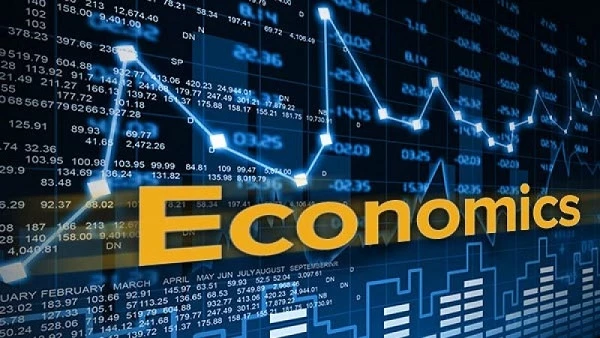The economic expansion of the 21st century will be slower than expected, study finds
Mind-reading skills are crucial for effective cooperation / A new study reveals the most effective phrases for brand slogans
A new study projecting the economic futures of four income groups over the next century reveals that growth will be slower than anticipated, with developing countries taking longer to close the wealth gap and approach the income of wealthier nations. According to the new study published today in Communications Earth & Environment, what economists have considered the worst-case scenario for global economic growth may actually be the best-case scenario.
According to the authors of the study, the findings suggest that governments need to begin preparing for slower growth, and wealthier nations may need to help lower-income nations finance climate change adaptations in the coming decades.
Matt Burgess, a CIRES fellow, director of the Centre for Social and Environmental Futures, and assistant professor of environmental studies at CU Boulder who led the new study, stated, "We may need to significantly increase financing for [climate] adaptation in developing countries, and we may be overestimating our future capacity to provide that financing under the current fiscal paradigm."

Ryan Langendorf, a postdoctoral scholar at CU Boulder and co-author of the new study, remarked, "We can now begin to narrow the range of possibilities and move forward in more tangible ways."
In the new study, Burgess and his colleagues used two economic models to predict the growth of the global economy over the next century and the rate at which developing nations will attain the income levels of wealthier nations.
The global economy will continue to expand, but at a slower rate than the majority of economists predicted, and the income gap between rich and poor nations will widen. This means that richer countries may need to help poorer countries finance climate adaptations, and debt-ceiling crises, such as the one the United States experienced this spring, may become more prevalent.
"Slower growth than anticipated will result in larger deficits than anticipated," Burgess stated. This could result in more frequent debt-ceiling battles as debt becomes increasingly contentious and significant over time.
In a manner analogous to putting on one's own oxygen mask in the event of an emergency during flight, the researchers assert that wealthier nations should focus on securing their own financial stability before assisting lower-income nations in financing climate adaptations.
"We're talking about relatively less growth and more inequality, but we're still talking about a world that is richer and more equitable than the world we live in today," Burgess said.
According to Ashley Dancer, a graduate student at CU Boulder and co-author of the study, this may not be possible under the new scenario, despite the fact that many wealthy nations are accustomed to growing their way out of debt.
"The next question is: what are some ways that we should or could assist [lower-income countries] in adapting, if it is anticipated that they will not reach the level of wealth that would enable them to do so quickly and aggressively?" The dancer stated.
Journal Reference: Matthew G. Burgess, Ryan E. Langendorf, Jonathan D. Moyer, Ashley Dancer, Barry B. Hughes, David Tilman. Multidecadal dynamics project slow 21st-century economic growth and income convergence. Communications Earth & Environment, 2023; 4 (1) DOI: 10.1038/s43247-023-00874-7
End of content
Không có tin nào tiếp theo



